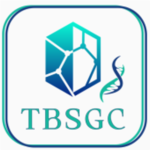
Dr Christopher Sassetti
Professor | Microbiology and Physiological Systems
Throughout history, tuberculosis (TB) has taken a remarkable toll on human health. Even today, more than 50 years after the advent of antibiotic therapy, this infection kills millions every year.
The resilience of this disease in the face of modern treatment is largely a result of the unusual biology of the causative agent, Mycobacterium tuberculosis.
The lab is focused on understanding the physiology of the mycobacterial cell, the interactions between host and pathogen, and how these fundamental biological processes influence pathogenesis and antibiotic efficacy.
RESEARCH
Pathogenesis of tuberculosis
Mycobacterium tuberculosis is often called the world’s most successful pathogen. It is estimated that one third of the human population has been exposed to this organism, and tuberculosis (TB) kills millions every year. Unlike many other bacterial pathogens that cause acute disease and replicate only in a specific host niche, M. tuberculosis can maintain a chronic infection by adapting to many distinctly different host microenvironments. To do this, Mycobacterium tuberculosis retains a complex and adaptable metabolic network that allows adaptation to diverse stresses. The flexibility of this network has confounded previous drug discovery efforts, as the role of many metabolic pathways during infection remain uncertain.
Together with TBSGC partners, the Sassetti lab leverages genetic, cell biological, and biochemical strategies to identify metabolic pathways that are vulnerable to inhibition under specific conditions relevant to infection, facilitating the discovery of more effective antimicrobial compounds.
